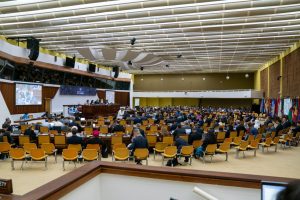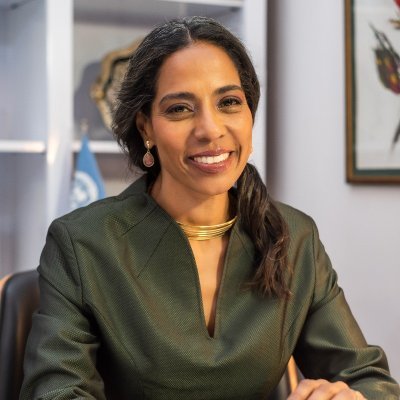By Leo Ryan, Editor
The election last Friday of Brazilian oceanographer Leticia Carvalho as the next Secretary General of the International Seabed Authority (ISA) could slow down progress in establishing regulations on deepsea mining for extracting vital minerals for global energy transition. notably including electric vehicle batteries. The UN-affiliated agency oversees 54% of the world’s seabed.
Presently serving as with the UN Environmental Program in Nairobi, Ms. Carvalho will be taking over from Michael Lodge, who has been serving in the position since 2016 and has faced strong criticism from some ISA member countries for being too close to executives of seabed mining companies and allegedly aggressively pushing the completion of regulations. Once such regulations are in place, a multi-billion dollar industry would be set in motion.
Elected by a vote of 79-34, Ms. Carvalho campaigned by stressing that trust had been broken and ought to be restored at the ISA. “The current divide of views among the state parties in the council is heavily due to the lack of trust and leadership, on top of whatever scientific gaps we may have or asymmetry of knowledge between the member countries. It is time for meaningful transformation at ISA,” said Ms. Carvalho.
The first woman to lead ISA, Ms. Carvahlo is also the first secretary-general with a background in oceanography. Her term will begin on January 1, 2025 and will run through December 2028.
Insisting that more scientific studies need to be undertaken, some 37 member states, including Canada, Germany, France and Switzerland have called for a moratorium or pause on deepsea mining. China, Mexico, UK, Nauru and even Norway support the concept of fast-track licenses.
A Canadian mining company based in Vancouver, The Metals Company (TMC), has repeatedly expressed its intention to apply for an exploitation license later this year, even before the mining code is finished. But Ms. Carvalho has said that she believes granting such a license before regulations are in place would be a “source of litigation.”
For the moment, most international attention has been focused on a vast untouched era in the central Pacific Ocean between Hawaii and Mexico, the Clarion Clipperton Zone (CCZ) where one finds small potato-sized deposits called polymetallic modules which contain highly-enriched minerals – including cobalt, manganese and nickel – highly sought after by manufacturers of electric car batteries and other electronic infrastructure. In this region, TMC has for several years been conducting research expeditions that have especially spurred protest actions from Greenpeace, a powerful environmental activist group with 3.5 million members, 2,40O staff and 15,000 volunteers.
Established by the UN in 1994, the International Seabed Authority granted the first licence for exploring polymetallic modules to TMC subsidiary, Nauru Ocean Resources Inc. (NORI) in 2011. TMC today holds exploration rights to three areas in the CCZ zone. For development and operations, TMC has formed a strategic alliance with Allseas, a leading contractor in the offshore energy market.

(Photos of Leticia Carvahlo and ISA General Assembly)


